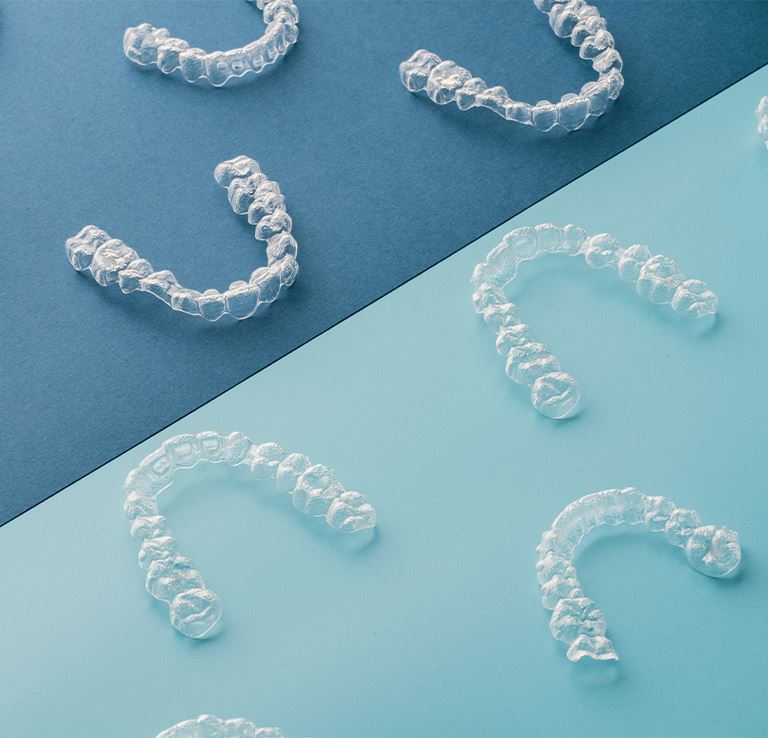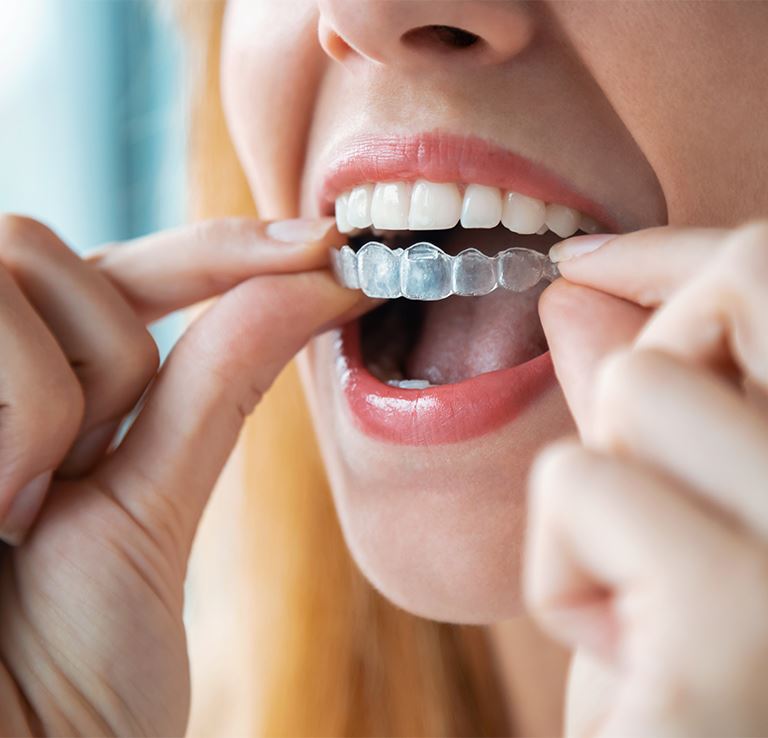
New York City Orthodontics
Straighter Smiles for Patients in Midtown East, Upper East Side & Surrounding Areas

At Marc Lazare D.D.S., M.A.G.D., you can count on the skills of Dr. Lazare to help you smile confidently again. Our established dental practice is built around a patient-centered model and we offer Invisalign treatments at our office. We provide a luxury experience and comfort with state-of-the-art equipment and a skilled support staff of registered dental hygienists and dental assistants.
Book your appointment with the best dental care you can find in Midtown East, Upper East Side & Surrounding Areas at (332) 334-8290 or contact us online today.
Orthodontic Services
Using advanced equipment and treatment procedures, our skilled team will examine your oral health for any pre-existing conditions and observe the trajectory of how your teeth have progressed thus far. By retrieving this information, our orthodontic specialist can formulate treatment plans that will best suit your situation.
Common options include, but are not limited to:
- Invisalign aligners
- Invisalign and fixed Retainers
We will make sure to review all options available, including an estimate of how long the treatment may take. We offer Invisalign in our office. For any other orthodontic treatment option, we can refer you to the best Orthodontist we partner with for your comprehensive treatment needs.
How Orthodontics Can Benefit You

It is generally recommended to start orthodontic treatments at a younger age rather than later, however, we can assist our patients whether they are in their pre-teen years or mature, grown adults.
In addition to a boost of self-confidence and better habits of oral hygiene, some additional benefits include:
- Closing gap and straightening crooked teeth
- Healthier teeth and gums
- Prevent tooth wear and trauma
- Improve oral functioning
- Correcting an improper bite
Post-treatment care
During and once your orthodontic treatment is complete, sustaining good oral hygiene is necessary to keep your smile beautiful. Why ruin your chances of attaining a pearlescent white smile right after spending months treating it? Once you are finally done with the entire process, you will fall in love with your smile and won’t stop sharing it with those around you.
If you need help achieving the perfect smile you’ve always desired, please do not hesitate to call us at (332) 334-8290 or contact us online today.

Frequent Orthodontics Questions
-
If the Appearance of My Teeth Doesn’t Bother Me, Is There a Point in Getting Braces or Invisalign?Whether or not one should seek orthodontic care at an older age is an individual decision. Many people live with crowding, overbites or other types of alignment problems without the motivation to seek orthodontic treatment. However, many people feel more comfortable and self-confident with properly aligned, attractive teeth. Unlike strictly cosmetic procedures, orthodontic care can also benefit your long-term dental health. Straight, properly aligned teeth are easier to maintain with proper oral hygiene, such as flossing and brushing. This can help reduce the risk of cavities as well as gum disease, which occurs more readily as it becomes increasingly more difficult to clean around crowded and rotated teeth. In addition, people with bad bites may chew less efficiently. In severe cases (particularly when the jaws are not aligned correctly), this can result in nutritional deficiencies. Correcting bite irregularities can make it easier to chew and digest foods. Improperly coordinated upper and lower front teeth also can create speech difficulties, which can be corrected through orthodontic treatment.
Finally, orthodontic treatment can help to prevent premature wear of back tooth surfaces. As you bite down, your teeth withstand a tremendous amount of force. If your front teeth don’t meet properly, it can cause your back teeth to wear more. -
Is There Any Way to Prevent the Need for Braces?If your mouth is destined to become crowded, or to develop large gaps or rotations, then braces are most likely in your future. However, there are ways to limit the duration of the treatment, or make it less involved. If you are seen early enough to do some interceptive orthodontics to correct conditions such as a constricted palate or cross bite, the treatment when you are older would be less complicated and much less time consuming. Additionally, wearing your retainers will prevent the need for braces again in the future. Some individuals, who are candidates, may also choose to wear Invisalign trays (clear, plastic orthodontic trays) to straighten teeth instead of opting for the bracket, band and wire option of traditional braces.
-
Do I Need to Spend More Time Caring for My Teeth When Wearing Braces?Yes, a lot of extra care is needed during orthodontics. The brackets and wires have many nooks and crannies that can trap food and plaque. This means your risk of tooth decay and gum problems may be higher while you are wearing braces. You need to pay special attention to cleaning your teeth everyday and to your diet (try to avoid acidic foods and beverages like soda). Permanent damage to tooth enamel can occur if the teeth and brackets are not kept clean, such as unsightly white spots due to the enamel becoming demineralized. Most of us are well aware that sugary foods and drinks can lead to tooth decay, but starchy foods, such as potato chips, and foods like nuts and raisins can also stick to teeth for long periods of time and cause tooth decay. Avoid hard foods such as nuts and hard cookies. There are foods that can loosen, break or bend wires and bands when you are wearing braces. Foods such as apples and carrots should be chopped into small pieces before eating to reduce the stress on your braces. Avoid sticky foods such as caramels, toffees, or fruit bars. No chewing gum! No chewing ice! Drink plenty of water, and use fluoride tooth pastes and rinses as recommended by your orthodontist. Additionally, try to avoid giving in to bad habits such as nail biting, unnatural tongue thrusting, pencil chewing and picking at your wires, which can also break your braces. Consider using special electric brush tips or orthodontic brushes, along with a water pik and floss threaders to clean more efficiently. While you are having orthodontic treatment, you need to continue to have regular check-ups with your dental professional to ensure little problems don’t become big ones.
-
What Should I Do to Fix My Braces if a Bracket or Band Comes Lose or a Wire Breaks or Sticks Out?Braces, bands or the wires that are affixed to each tooth occasionally will break or fall off completely, but usually what happens is that one of the parts will loosen, which may cause minor discomfort. Here are a few problems that can occur:
• Loose bracket — Brackets are the metal or ceramic pieces that are bonded (glued) to the teeth. If the bond weakens or breaks, which can happen after you chew something hard or sticky, the bracket can dislodge and may poke at the gum tissue or other soft tissues in the mouth, such as your tongue or cheek. You can temporarily reattach loose brackets with a small piece of orthodontic wax, or place wax over the bracket to provide a cushion so it doesn’t poke you. This should provide some comfort until you can see your orthodontist.
• Loose band — Orthodontic bands are the metal rings cemented with dental bonding agents or cement around back teeth. If an orthodontic band becomes loose, call for an appointment to have it re-cemented or replaced. If the band comes off the tooth or the wire completely, do not replace it yourself. Save the band and call to schedule an appointment for repair.
• Protruding or broken wire — This is a common problem. If a wire sticks out of the bracket or band or breaks, it may poke or damage your cheek, tongue or gum. The easiest solution is to use the eraser end of a pencil to push the wire into a less bothersome position. If you can’t bend it out of the way, put a small piece of orthodontic wax over the end that is sticking out. You should not cut the orthodontic wire. A cut wire can be accidentally swallowed or inhaled into your lungs. If the damaged wire has caused a painful sore, rinse your mouth with warm salt water or an antiseptic rinse. This will keep the area clean and help reduce the discomfort. You can also apply an over-the-counter dental anesthetic (pain reliever), which will temporarily numb the area. If the pain doesn’t get better or the sore seems to be getting worse, call your orthodontist.
• Loose spacer — Spacers or separators are rubber circular pieces that are put between your teeth. They are left in place for a brief period of time, usually for several days. They open a small space between your teeth so that the orthodontic band will slip into place easily. Sometimes, they can slip out of position or fall out entirely. If this happens you should make an appointment with your orthodontist to have them replaced. -
How Should I Take Care of My Retainer?Most retainers are removable, meaning that you take them out when eating, brushing and flossing. For this reason, they are easy to misplace. Many people wrap their retainers in a napkin when eating, then forget about them afterwards and have to spend hundreds of dollars on a new retainer. A good solution is to always carry your retainer case with you and to use it whenever you’re not wearing your retainer. For added protection, never leave the case on a table or a bench — always put it immediately in your backpack, purse or pocket.
Your dentist can give you information on how to clean and care for your specific type of retainer. Regardless of the type, you need to make sure you don’t sit on, step on or otherwise damage this delicate and expensive piece of equipment.
-
Get a complete spa-like environment with Dr. Lazare and his top-notch customer-friendly staff. I fell asleep while Dr. Lazare gave me two fillings and didn't feel a thing.
- Jay
to Get Started? Call Us at 332-334-8290 or Schedule Your Next Visit
-
Monday: 8am - 5pm
-
Tuesday: 8am - 5pm
-
Wednesday: 10am - 7pm
-
Thursday: 8am - 5pm
-
Friday: 8am - 5pm
-
Saturday: 9am - 6pm
-
Sunday: Closed

